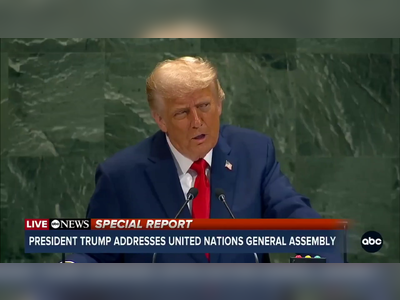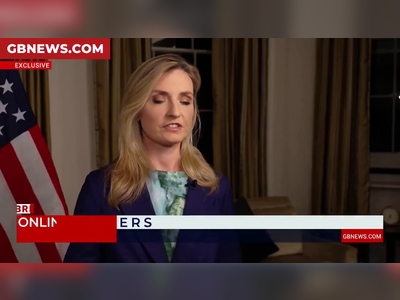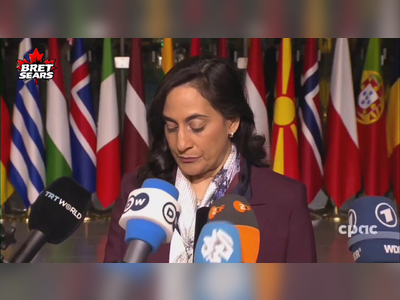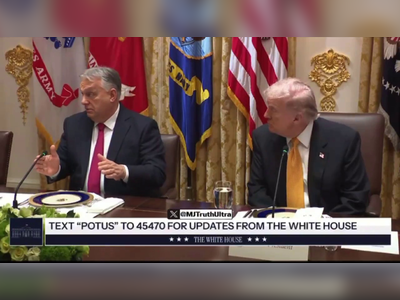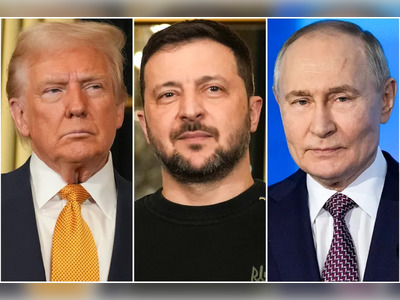U.S. Political Tensions Rise as Trump Advocates for Peace and Zelensky Calls for Arms
Key developments emerge following the contentious exchange between former President Trump and Ukrainian President Zelensky.
In recent political discourse, former U.S. President Donald Trump has expressed a strong desire for peace regarding the ongoing conflict in Ukraine.
His call for negotiations follows a pronounced escalation in hostilities, with implications for U.S. foreign policy and international relations.
Trump has emphasized the importance of dialogue over military engagement, arguing that diplomatic solutions should be prioritized to resolve conflicts.
Conversely, Ukrainian President Volodymyr Zelensky has reaffirmed his stance on the necessity of military support from Western allies, particularly the United States.
Zelensky's administration continues to seek advanced weaponry and military resources to bolster Ukraine's defense capabilities against Russian aggression.
His comments reflect the broader urgency felt in Ukraine as the war enters a more intensive phase, affecting both national security and humanitarian needs.
Tensions within U.S. political circles have been heightened by differing approaches advocated by leaders regarding handling the Ukraine crisis.
Some key American politicians, including Republican House Speaker Mike Johnson, have urged a reevaluation of Zelensky’s leadership, suggesting either a need for Zelensky to adopt a more conciliatory approach or for a change in Ukraine's leadership.
This reflects a potential shift in opinion within the U.S. Congress regarding continued support for Ukraine.
The developments signal a complex interplay of domestic and international pressures as U.S. political figures navigate the demands of constituents who hold varying views on military involvement abroad.
Support for Ukraine remains significant among many Democrats, while some Republicans call for a more restrained policy that prioritizes negotiation over military aid.
The situation underscores the ongoing debate about the extent of U.S. involvement in foreign conflicts and the commitment to European security, which is being closely monitored by both allies and adversaries alike as the geopolitical landscape continues to evolve.
His call for negotiations follows a pronounced escalation in hostilities, with implications for U.S. foreign policy and international relations.
Trump has emphasized the importance of dialogue over military engagement, arguing that diplomatic solutions should be prioritized to resolve conflicts.
Conversely, Ukrainian President Volodymyr Zelensky has reaffirmed his stance on the necessity of military support from Western allies, particularly the United States.
Zelensky's administration continues to seek advanced weaponry and military resources to bolster Ukraine's defense capabilities against Russian aggression.
His comments reflect the broader urgency felt in Ukraine as the war enters a more intensive phase, affecting both national security and humanitarian needs.
Tensions within U.S. political circles have been heightened by differing approaches advocated by leaders regarding handling the Ukraine crisis.
Some key American politicians, including Republican House Speaker Mike Johnson, have urged a reevaluation of Zelensky’s leadership, suggesting either a need for Zelensky to adopt a more conciliatory approach or for a change in Ukraine's leadership.
This reflects a potential shift in opinion within the U.S. Congress regarding continued support for Ukraine.
The developments signal a complex interplay of domestic and international pressures as U.S. political figures navigate the demands of constituents who hold varying views on military involvement abroad.
Support for Ukraine remains significant among many Democrats, while some Republicans call for a more restrained policy that prioritizes negotiation over military aid.
The situation underscores the ongoing debate about the extent of U.S. involvement in foreign conflicts and the commitment to European security, which is being closely monitored by both allies and adversaries alike as the geopolitical landscape continues to evolve.
AI Disclaimer: An advanced artificial intelligence (AI) system generated the content of this page on its own. This innovative technology conducts extensive research from a variety of reliable sources, performs rigorous fact-checking and verification, cleans up and balances biased or manipulated content, and presents a minimal factual summary that is just enough yet essential for you to function as an informed and educated citizen. Please keep in mind, however, that this system is an evolving technology, and as a result, the article may contain accidental inaccuracies or errors. We urge you to help us improve our site by reporting any inaccuracies you find using the "Contact Us" link at the bottom of this page. Your helpful feedback helps us improve our system and deliver more precise content. When you find an article of interest here, please look for the full and extensive coverage of this topic in traditional news sources, as they are written by professional journalists that we try to support, not replace. We appreciate your understanding and assistance.

